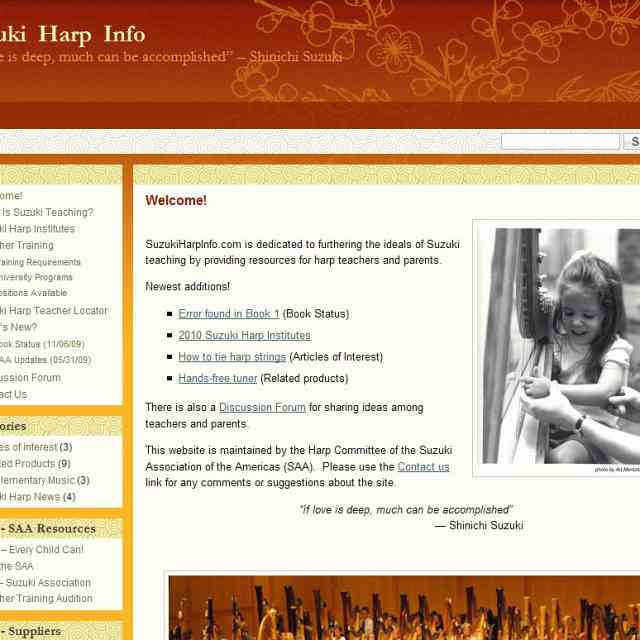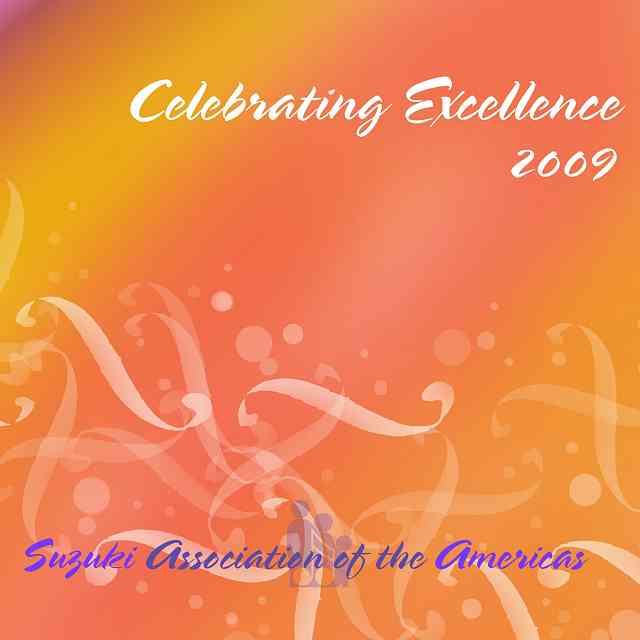
Last summer, focus groups at summer Institutes were asked to submit questions for a panel of “Suzuki Experts” to answer. This is the 9th installment.
What is the long-term teaching goal for all students?
In Nurtured by Love, Dr. Suzuki says: “I just want to make good citizens. If a child hears good music from the day of his birth, and learns to play it himself, he develops sensitivity, discipline, and endurance. He gets a beautiful heart.”
So, the long-term teaching goal for Suzuki students is not to make them into professional musicians, but to help develop them into fine people through the study of music. An appreciation of beauty, a sense of self-control and discipline, concentration skills, and a kind, generous heart are what we aim to develop in our children. Dr. Suzuki goes on to say, “If nations cooperate in raising good children, perhaps there won’t be any war.”
These are truly wonderful goals for our students.
How can piano teachers work together to raise the overall quality of our students on a local and national basis?
On a local basis, the first step is to reach out and contact other teachers in your area. Then, there are many activities a small group of interested teachers can do raise the quality of their students’ musical education. Here are a few suggestions:
-
Arrange a “straight exchange” of students from two studios for a day. Gail Lange, a Teacher Trainer who lives a half-hour drive away, and I have done this with great success. For details on our exchange, read the article we wrote for the Suzuki Association of Ontario newsletter, entitled “Exchanging Students – Exchanging Ideas”.
-
Arrange a workshop with a guest clinician such as a Teacher Trainer or other experienced Suzuki teacher. The SAA Membership Directory lists the contact information for all the Teacher Trainers, along with a biography. Ask participating parents to arrange a pot-luck meal, and provide a suitable activity for the children while parents listen to a Parent Talk given by the clinician. Suzuki teachers in the Montreal, Quebec area, for example, have formed an association which charges all families an annual fee which covers the workshop and also provides financial assistance to students attending their local institute.
-
Encourage students from different studios to prepare chamber music together—piano duos, duets, trios, or quartets, and even string/piano ensembles. Students will enjoy the coaching from another teacher and be motivated to prepare their repertoire to a high level!
-
If there is a music festival in your area each year, encourage your students to participate, and attend the classes yourself. Students work hard to polish their performance repertoire and hear the performances of others in the area. As teachers and students learn from other teachers and students in the community, the level of playing will definitely improve over the years.
-
Establish a “lending library” which is made available to teachers in the local area. The library could consist of past SAA Journals, other music journals such as Clavier Companion, pedagogy books, videos, and recordings.
-
Send students to a Suzuki Institute. The achievement of students at institutes during a short period of time at an institute is amazing, and parents, students, and teachers will all be encouraged for the coming year. If families need financial assistance to attend an institute, perhaps a fund-raising concert given by teachers or advanced students could be held in the area.
-
Encourage your colleagues to take Teacher Development courses, and to observe their students participating at institutes. Perhaps a group of teachers would be interested in taking the same course together.
-
Organize a group of colleagues to travel to the bi-annual Suzuki Conference in Minneapolis. Travelling together will provide a wonderful opportunity for teachers to share ideas and solutions to pedagogical problems, and on the return, an opportunity to discuss the various sessions and concerts at the conference.
-
Organize a multi-piano concert—students playing three pianos, five pianos, or ten pianos at the same time. Students must develop the repertoire to a high level to be able to play in unison well, and they must learn to listen to themselves and the other students in their group.
-
Join or form an SAA Chapter Affiliate organization in your area.
If activities such as the above are adopted at the “grass roots” level in many local and regional communities, then the quality of the students across the nation will also improve. The many fine student performances at the SAA conferences in Minneapolis are examples of what can be accomplished “where love is deep” in North, Central, and South America.
—Expert of the Week, Ellen Berry
See more Ask the Experts columns.








